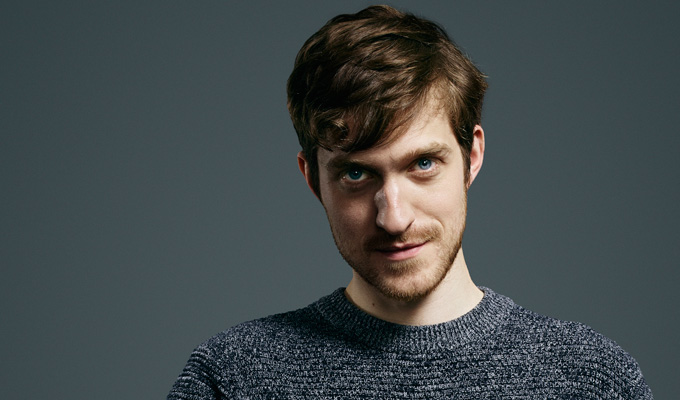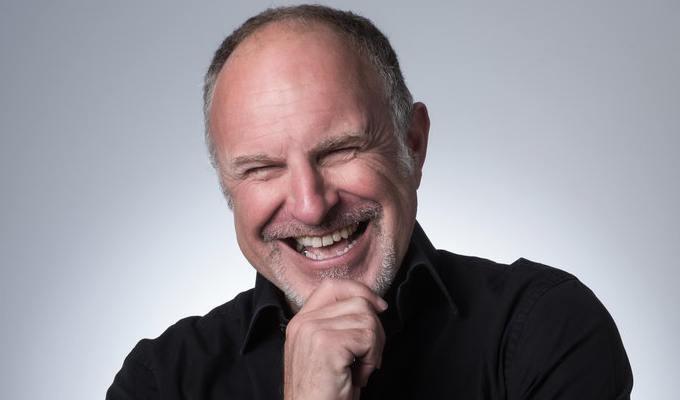Raw Comedy National Grand Final 2012
Note: This review is from 2012
Review by Steve Bennett
The conquest of the nerds continues, with another exponent of awkward ‘anti-comedy’ scooping this year’s Raw title – just one of several such acts who made it through to the national final.
Looking For Luis is a three-man character collective, based around the most socially retarded family you could imagine. They are the worst archetypes of purity-ring Christian misfits, with matching pastel patterned jumpers, home-cut hair and terrible sense of humour. They crack dismal puns, building them up with all the fanfare their chronic shyness will allow.
It doesn’t sound like much, and the laughs they got from half the audience surely baffled the other half, but there is a strange joy in their uncomfortable low-fi performance and painfully forced jolity. Luis, the charisma-free frontman, is joined on stage by his father Len and brother Luelin, who bolster the weak gags with harmonica stings and cassette-recorded effects respectively. Dad also witters on aimlessly to fill in lulls in the performance.
As they shuffle slowly on, their unnecessarily elaborate props in giant plastic bags, the only certainty in the air is that this is going to be something a bit odd – and so it transpires. ‘What the fuck just happened?’ said host Dave Thornton as they eventually cleared all their cheap bric-a-brac from the stage – and so capturing the mood of an entire audience.
But these were not the only weirdly uneasy performers in the final, which will be televised on the ABC next month. Last year, the contest was won by Dayne Rathbone, who read a stilted, nervous presentation to the audience – and three of this year’s finalists borrowed the same template.
Mitchell McCutcheon, from Queensland, was the best of them, with his apparently dry lectures on the subjects of ‘people’ and ‘cups’ enlivened with some gloriously precise writing, with a few offbeat gems, and a talent for choosing the most perfectly inelegant word for the occasion. He also engaged in some dry pieces of audience participation, including an enjoyable running gag that presumed one front-row unfortunate was a closet racist.
Later, Tasmania’s Dylan Heap performed in character as an another nervous geek, Stephen, complete with bum-bag and inappropriate T-shirt. But the characterisation was slight and inconsistent, and although he had a few funny, obtuse, lines, couldn’t live up to the standard McCutcheon set.
He was immediately followed by Kyle Walmsley, allegedly appearing as part of an ‘anxiety awareness therapy programme’, but by now the law of diminishing returns had set in for this type of slow, deadpan delivery – especially as the routine leant too heavily on disgusting imagery for shock-value laughs than genuine underplayed wit.
The appeal of the awkward delivery is obvious for comedy newcomers – who might want to make their understandable nervousness part of the shtick, especially as they are frequently real-life outsiders themselves. But it does leave the comic very exposed, making it’s a very difficult approach to pull off without spot-on writing.
A couple of more traditional stand-ups also impressed in the final. Both Cameron James and Amos Gill brought an engaging, effusive persona to the table – and both were rewarded with a runners-up gong, not a bad result considering a total of 1,078 wannabes entered this contest.
James is the more interesting, with his take on being a spoilt generation Y kid, supposedly gay mannerisms and sex life. He never approaches topics head-on, and has perfect comic timing, with sentences switching around on the most well-judged of pauses.
Gill – suffering from a very croaky throat – was sometimes more predictable in his writing, especially when mocking bogans or highlighting the gay undertones of manly sporting endeavours. But he has some nice takes on his tedious call centre job, and posseses the sort of instantly likeable, everyman style that broadcasters love.
Elsewhere, the half-Dutch, half-Mauritian Mike Nayna proved an interesting act, deliberately provocative in his sometimes uncomfortably blunt use of racial stereotypes and making light of paedophilia. His delivery of this material can be confusing, as there’s not a consistent comic voice, and a bit more likeability would go a long way. But despite these flaws, I’d be curious to see how he develops.
Rewinding back to the unenviable opening spot, Andrew Wolfe proved a technically adept stand-up, confident and natural on stage. His scattergun material from everyday life often landed on the cliché – especially on the well-worn topics of Embarrassing Bodies and the virgin birth – but he has all the trappings of a pro, so instantly reassured the audience the forthcoming show would be OK, despite the inexperience of the participants.
Next up, Hayman Kent made a lot of her unusual name. Rather too much, in fact, and she has yet to learn that sometimes less is more. But she has an appealing persona, with sweet sing-song voice anda delightful timidity, which is nicely brought into focus by her almost mournful take on Destiny’s Child’s Independent Woman. She sometimes shows an edge, especially towards her out-of-touch granny, but her vulnerability is her trump card – and at only 21, she has plenty of time to sharpen up the writing.
Kent is a positive old-timer compared to 17-year-old Ivy Latimer, who’s clearly been watching a lot of Maria Bamford. The winsome teenager has the trappings of a stage-school child, keen to show off her full range of accents from aging science teacher to New Joirsey broad. It’s rather too rigid a delivery for stand-up, and again the script could be funnier, but there’s no doubt about her promise as a comic actress.
The third woman among the 12 finalists was Georgie Carroll, originally from Rochdale in England but now living in Adelaide. In complete contrast to Latimer, she has a very relaxed, unaffected approach. In fact, it can be a bit too relaxed as she chats away, apparently unaware that stand-up should be like an *edited* conversation. But as this segues into her material, about her internationally underperforming children and sex education, her instinctual wit comes forth.
Another Brit – 24-year-old Jon Pinder – closed the show, pacing the stage as part of animated, energetic delivery. But that was something of a fig leaf for a paucity of material, the highlight of which seemed to be sniggering at a headline saying ‘Arson probe’. A rare dud in a night that shows there’s plenty of promise in the future of Australian comedy.
Review date: 16 Apr 2012
Reviewed by: Steve Bennett
Reviewed at:
Melbourne International Comedy Festival






